The Science of
Science-Fiction Writing
The Science of
Science-Fiction Writing
James Gunn

SCARECROW PRESS, INC.
Published in the United States of America
by Scarecrow Press, Inc.
A wholly owned subsidiary of
The Rowman & Littlefield Publishing Group, Inc.
4501 Forbes Boulevard, Suite 200, Lanham, Maryland 20706
www.scarecrowpress.com
PO Box 317
Oxford
OX2 9RU, UK
Copyright 2000 by James Gunn
All rights reserved. No part of this publication may be reproduced, stored in a retrieval system, or transmitted in any form or by any means, electronic, mechanical, photocopying, recording, or otherwise, without the prior permission of the publisher.
British Library Cataloguing in Publication Information Available
Library of Congress Cataloging-in-Publication Data
Gunn, James, 1923
The science of science-fiction writing / James Gunn.
p. cm.
ISBN: 978-1-57886-011-1
1. Science fictionAuthorship. I. Title.
PN3377.5.S3 G86 2000 |
808.38762dc21 | 00-026016 |
 The paper used in this publication meets the minimum requirements of American National Standard for Information SciencesPermanence of Paper for Printed Library Materials, ANSI/NISO Z39.48-1992.
The paper used in this publication meets the minimum requirements of American National Standard for Information SciencesPermanence of Paper for Printed Library Materials, ANSI/NISO Z39.48-1992.
Manufactured in the United States of America.
Contents
16. Heroes, Heroines, Villains:
The Characters in Science Fiction
Acknowledgments
The Anatomy of a Short Story was published in Writers Digest, April 1986.
The Issue Is Character was published in Writers Digest, December 1992.
The World View of Science Fiction was published as The Worldview of Science Fiction in Extrapolation, Summer 1995.
Where Do You Get Those Crazy Ideas? was published in Writing and Selling Science Fiction, Writers Digest Books, 1976.
Heroes, Heroines, Villains: The Characters in Science fiction was published in The Craft of Science Fiction, edited by Reginald Bretnor, Harper & Row, 1976.
Robert A. Heinlein: The Grand Master was published as an introduction titled The Grand Master for The Puppet Masters, Gregg Press, 1979.
Isaac Asimov: The Foundations of Science Fiction was published as the first chapter of Isaac Asimov: The Foundations of Science Fiction, Oxford University Press, 1982, and in revised form by Scarecrow Press, 1996.
Henry Kuttner, C. L. More, et al. was published as Henry Kuttner, C. L. Moore, Lewis Padgett, et al. in Voices for the Future, edited by Thomas Clareson, Bowling Green University Press, 1976.
Copyright 1999 by James Gunn.
Introduction
The September 1999 issue of Analog included a story by James Gunn called The Giftie. Although I did not think about it until after the event, that publication marked, to the month, the publication of my first science-fiction story, Communications, in the September 1949 Startling Stories. To be strictly accurate, it was my second story; it got published first, but the first one I wrote was Paradox, which was published in the October Thrilling Wonder Stories. I didnt have a story published in Astounding Science Fiction until Private Enterprise in July 1950.
All those stories, like the rest of my first ten, were published under the pseudonym of Edwin James, for reasons that now are difficult to recall. I think it had something to do with keeping my real name for writing about science fiction, which has something to do with the present book. The last story published under my pseudonym was Survival Policy in the October 1952 Astounding. The first story published under my real name was my eleventh, The Misogynist, in the November 1952 Galaxy.
My experience as a full-time writer of science fiction lasted only four years, the first period between 1948 and 1949 and the second between late 1952 and mid-1955, although, since my retirement in 1993, I may be in my third. The 1950s were a difficult period to be a full-time writer; SF was supporting maybe half a dozen full-time writers at the time. In 1995, when my writing income was beginning to pick up, I moved my family to Lawrence, Kansas, where I had earned two degrees from the University of Kansas. Almost by accident I got involved with the University, first as a part-time teacher of freshman courses in composition, then as managing editor of its alumni publications. In 1958 I was invited to fill a new position writing feature articles about the University and the following year was hired as Administrative Assistant to the Chancellor for University Relations, eventually assuming responsibility for the Universitys public relations.
In that position I taught one course a year in fiction writing and kept up my contacts with the English Department. Meanwhile, throughout this period, I continued to write part-time, completing the stories for Station in Space, The Joy Makers, The Immortals, and my first collection of short stories, Future Imperfect. For a few years during the tumultuous 1960s I found no time to writeI didnt even take the months vacation to which I was entitledbut about 1967 I got back to it. I devoted my vacation to writing tasks that I had carefully laid out in the months before, and completed the last two novellas in The Burning and wrote the chapters and stories that eventually developed into Kampus and The Listeners.
In 1970 I decided to return to teaching and writing, and the English Department welcomed me. When he told me about the unanimous departmental vote, the Chairman also commented that some of the younger faculty members hope you will teach a course in science fiction. I taught that course my first semester back, and the lectures became the chapters of Alternate Worlds: The Illustrated History of Science Fiction, the coffee-table book that Prentice-Hall published in 1975. It was the beginning of my writings about science fiction.
But teaching, and the time the University expected to be devoted to research, also liberated my fiction-writing energies, and I published two books a year for the first few years of my full-time teaching career. As a part-time writer, I was following a long tradition. Over the years most science-fiction writers have written in the time they could spare from full-time jobs or household duties. Part-time writing has its virtues; when money is not the primary concern, writers can devote themselves exclusively to what they want to write. Only in the last couple of decades, with the broad expansion of the book market from under 300 science-fiction and fantasy books a year in 1972 to about 2,000 books a year today, has the full-time writing of science-fiction become relatively common.
The 50th anniversary of the publication of my first story (it was my 96th published story) combined with a couple of earlier events to catalyze The Science of Science-Fiction Writing. A dozen years earlier I had begun gathering my various chapters and essays about science fiction into a thick folder under the title of Inside Science Fiction. When Robert Reginald asked me if I would be interested in publishing a book with Borgo Press, I thought of this folder. As I put the book together, however, I discovered that I had enough material for at least two books. Since Borgo Press was an academic publisher, I selected for
Next page

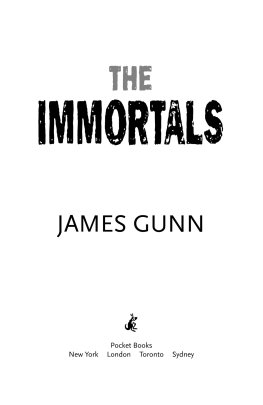
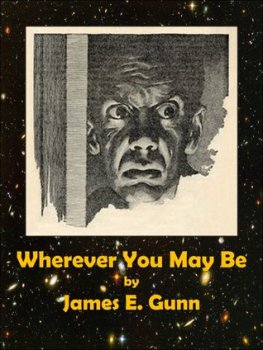
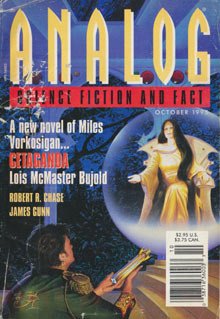
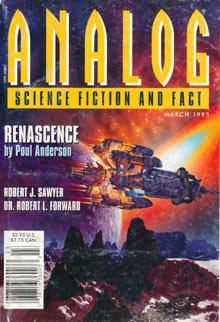
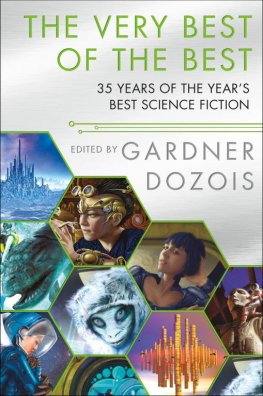
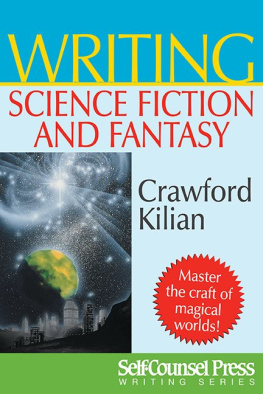
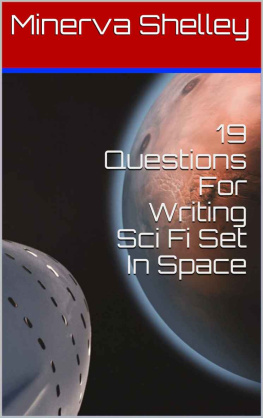
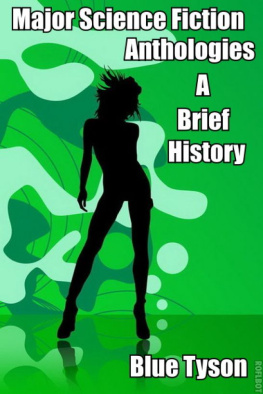
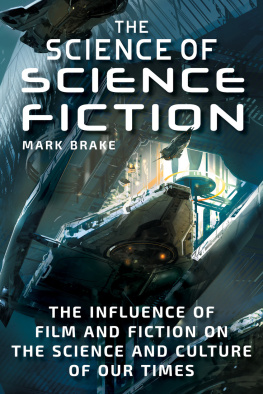
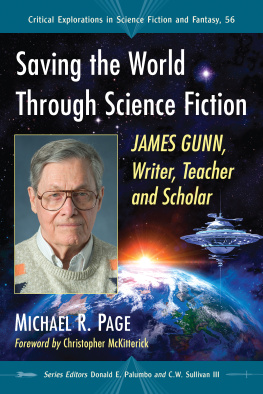
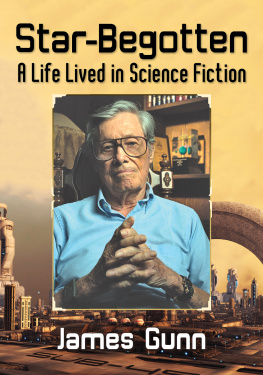
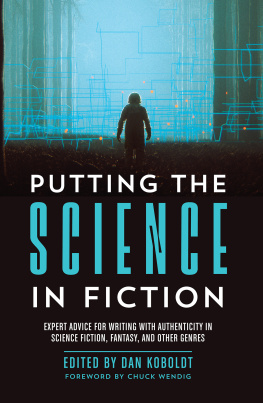
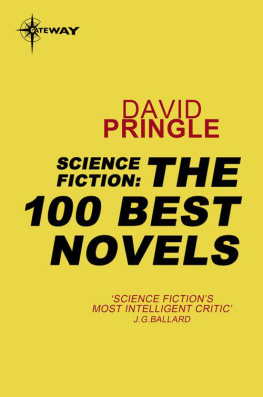
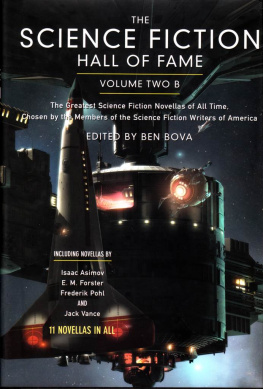

 The paper used in this publication meets the minimum requirements of American National Standard for Information SciencesPermanence of Paper for Printed Library Materials, ANSI/NISO Z39.48-1992.
The paper used in this publication meets the minimum requirements of American National Standard for Information SciencesPermanence of Paper for Printed Library Materials, ANSI/NISO Z39.48-1992.